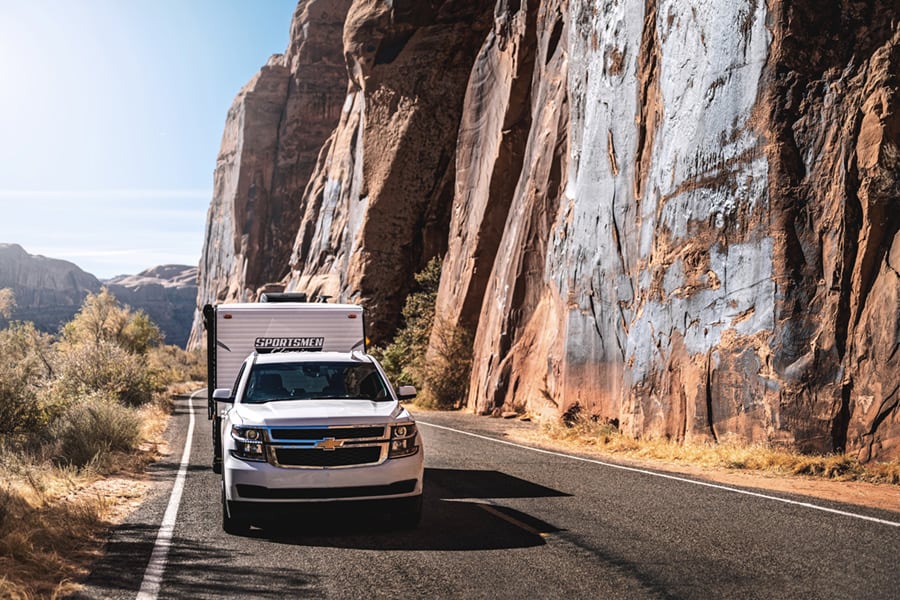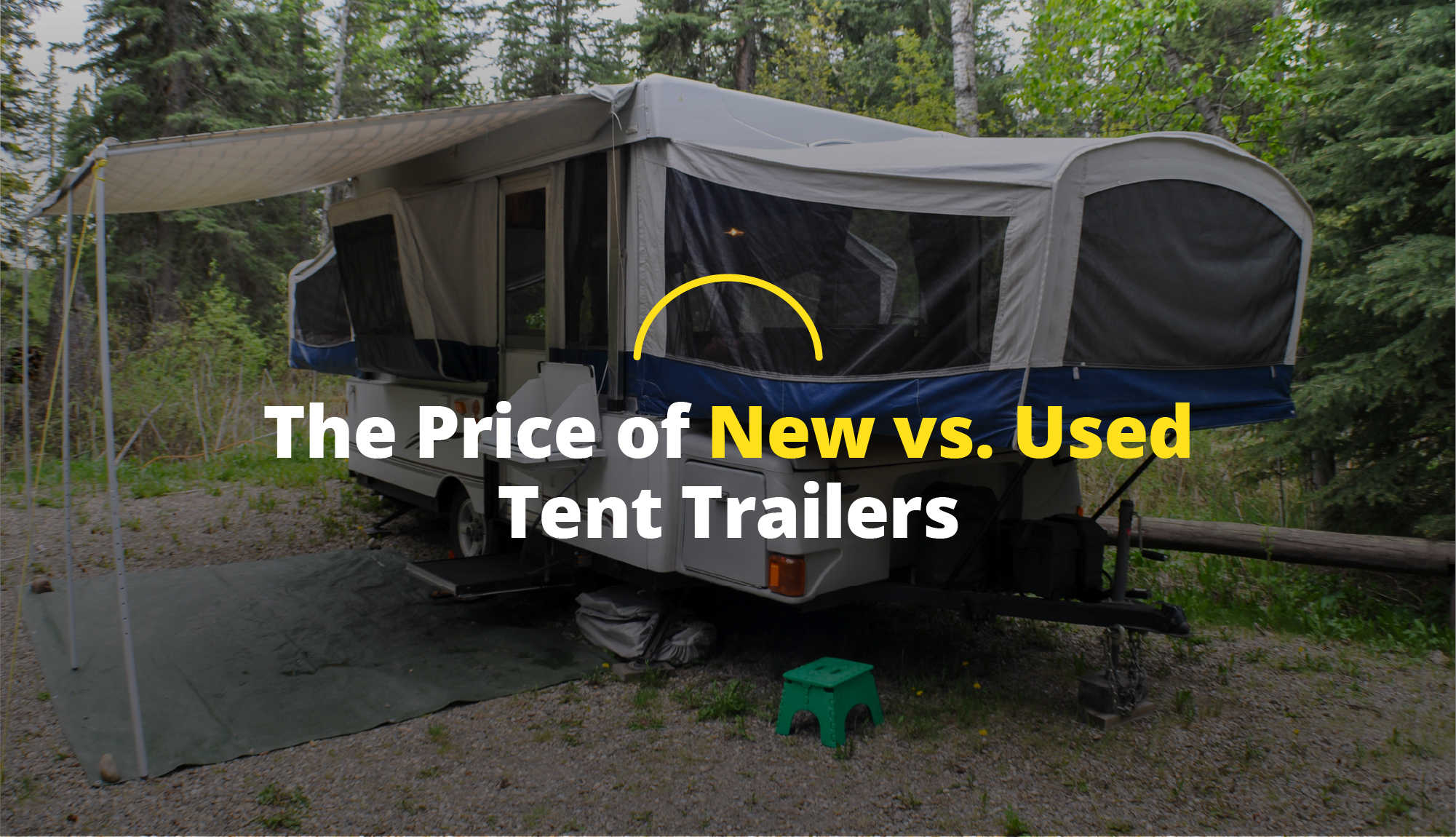5 RV Driving Safety Tips to Avoid Accidents
Driving an RV uses a completely different mindset than driving a regular vehicle. Before heading out to your favorite family campground, review these 5 RV driving safety tips to avoid accidents.
1. Check Your Vehicle Before You Hit the Road
RV safety starts before you even get on the road. Check for these potential hazards in preparation for any trip:
- Check fluid levels and refill (gas, brake fluid, engine oil, transmission fluid, coolant, windshield washer fluid, and power steering)
- Address dashboard lights
- Clean mirrors and windows
- Inspect tires
- Secure loose items
- Turn off all equipment unnecessary for driving
Tires are the cause of 60%-70% of RV insurance claims. To avoid tire blowouts, make sure your tires do not get too low. Follow the sticker on your RV’s sidewall for your specific tire pressure.
Finally, adjust your mirrors and seat so you have the best visibility while driv
2. Compensate for Extra Weight, Length, and Height
The larger size of an RV affects how it performs on the road. Be sure to consider the weight, tail swing, and height of your RV before setting out because:
- The extra weight of your RV can influence your braking speed. Keep an extra 20% distance between you and the car in front of you to make up for that weight.
- The distance that the back of your RV swings out from the pivot point is called your tail swing. This distance should be measured before you get on the road so you can compensate for that extra space when turning on a busy street.
- RVs are taller than your vehicle. Know the exact height of your RV so you can avoid low overhangs and bridges. Be prepared to visit several gas stations before finding one that accommodates your RV’s height and length.
3. Be Aware of Outside Factors Affecting Your Trip
Many accidents are caused by bad weather, sleep-deprived drivers, and unfamiliar roads. Double-checking the width and quality of roads and avoiding backroads can save you trouble later.
An unevenly packed RV or overloaded RV can also affect your driving as well. If an RV has more weight distributed to one side, your RV could shake on turns or even tip if you take a turn too quickly. In addition, your items could fall or spillover, which will need to be cleaned up, or worse, distract you when you need to be concentrating on the road, ensuring the safety of your family and other drivers.
4. Drive with Others in Mind
RVs can sometimes drive at the same speed as other cars, while some locations don’t allow RVs to go over 88 Km/h. If you are driving slower than others around you, move over and let them pass.
Driving in the right lane of a multi-lane highway will give you the best visibility of the cars around you and allow others to pass you. When you do have to turn or change lanes, give plenty of warning using your turn signals.
5. Know Your RV Before You Take Your First Trip
When you are looking at RVs for sale or looking to trade in your old RV, double-check your new RV’s information. This includes the vehicle’s size, gas type, tire pressure, engine size, and any other relevant information specific to your vehicle. This information will help you make safe choices during your next family camping trip.
Practice in your new RV before you ever take it on a public road. Practice with a second person who can stand outside the vehicle to measure its tail swing and give you advice for safe parking.
Get Your RV Ready for the Road
Are you ready to drive your new RV? Visit Leisure Days RV Centre Gatineau Service Department and get one last inspection and service to make sure your RV is in the best shape before hitting the road.





